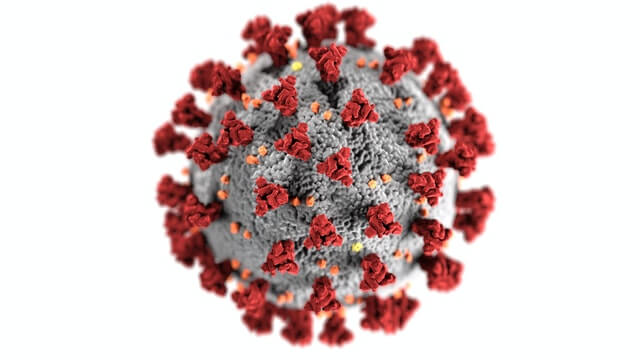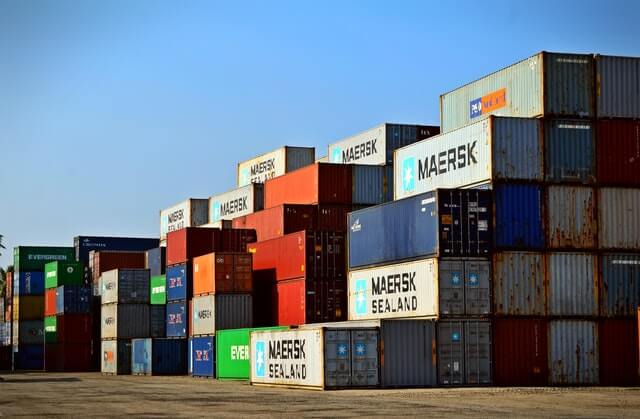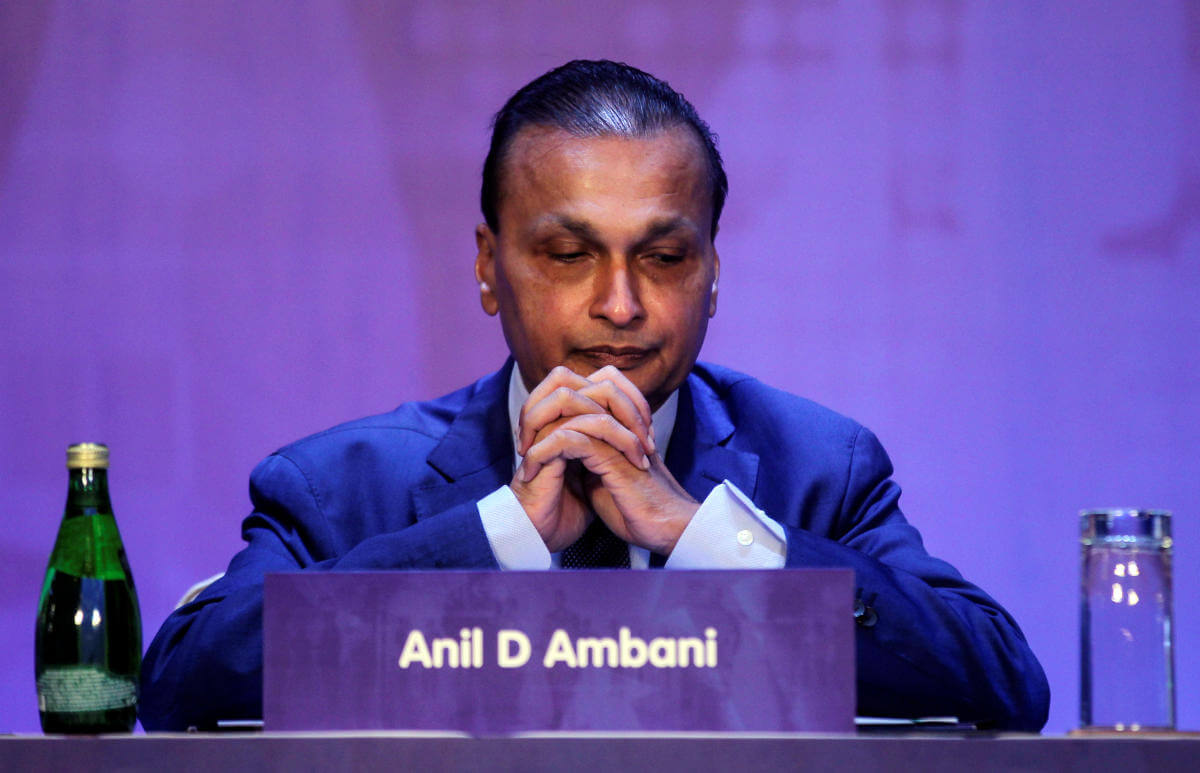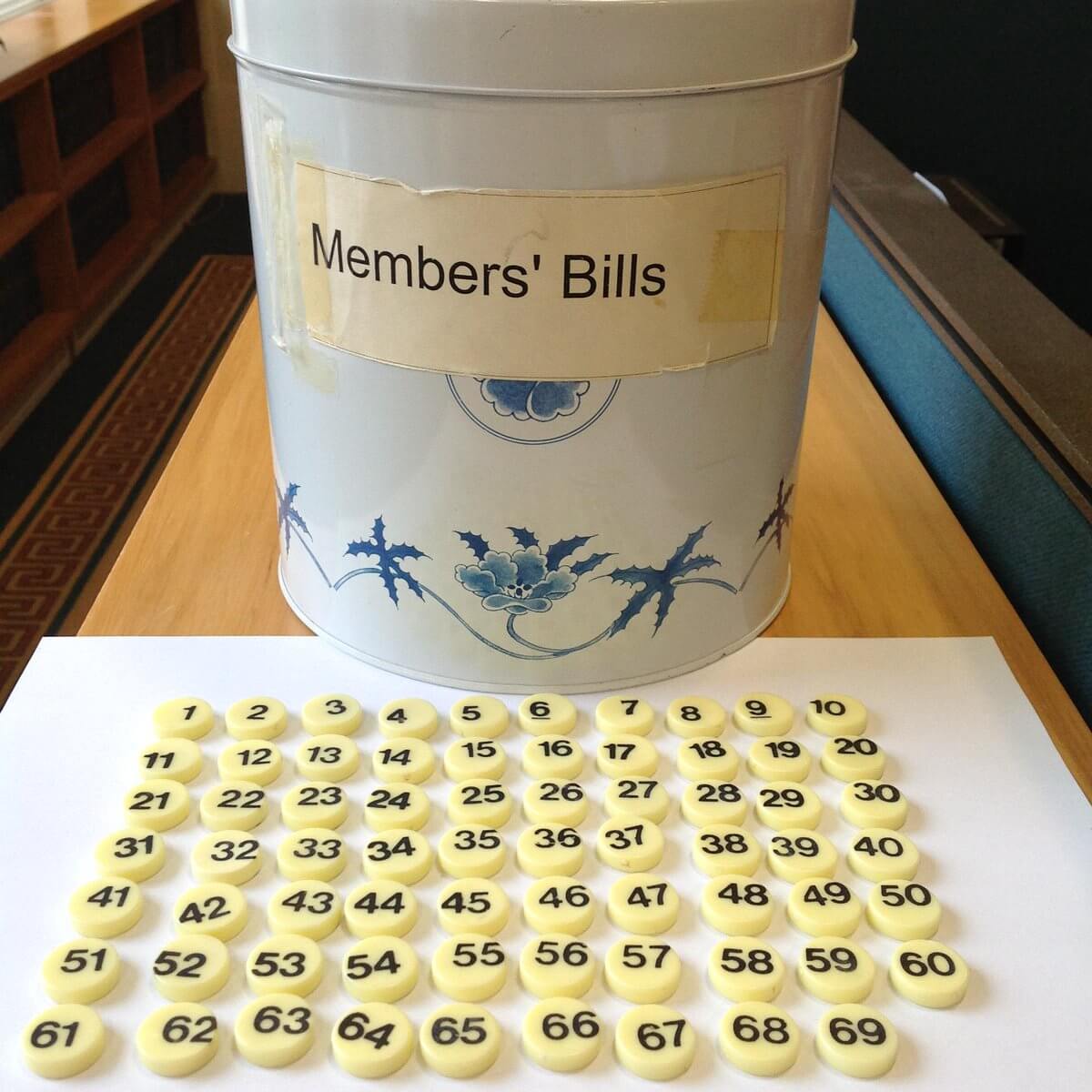This Blog is written by Aadish Jain from Symbiosis Law School, Noida. Edited by Prakriti Dadsena.
Honour killing, frequently, the homicide of a woman or young lady or a girl by male relatives. The executioners legitimize their actions by guaranteeing that the casualty has brought shame upon the family’s name, eminence, and prestige.
This Blog is written by Sarthak Verma from Symbiosis Law School, Noida. Edited by Ritika Sharma.
Adverse possession and Permissive possession hold a great significance mainly in the property law, where on one side some rights are granted to the possessor or the owner and on the other side some kind of limitation is put over them, where the duration for lamination and having legal action against the possessor is 12 years.
This Blog is written by Vedika Ghai from Symbiosis Law School, Noida. Edited by Prakriti Dadsena.
The coronavirus pandemic has had numerous social, economic, political and strategic implications. Individuals, societies, states and international organizations will be dramatically influenced by the pandemic. The world is right now confronting an episode of the new coronavirus (2019-nCoV) which began in China in December 2019 and spread to different parts of the world inside a couple of days.
This Blog is written by Aastha Sarda from ILS Law College, Pune. Edited by Ritika Sharma.
The chairman of the First Law Commission of British India (established under the Charter Act of 1833), Lord Macaulay, was of the opinion that the marital infidelity or the acts of adultery between the parties are private matters which do not do any public harm and therefore the law should not interfere and restrict it to a criminal offence.
This Blog is written by Rohan Singh from University of Petroleum and Energy Studies, Dehradun. Edited by Ravikiran Shukre.
This phrase has been often used in international law, specifically in treaty law in a form of doctrine and been a subject on which debates and dispute took place. Provisions of this have been given under Article 62 of the Vienna Convention of the law of Treaties 1969 and this is also the part of customary international law.
This Blog is written by Ayush Meena from Narsee Monjee Institute of Management Studies, Indore. Edited by Lisa Coutinho.
In recent times Religious Violence and Communal Riots seem to be in a rise in India, and the need for Separate Legislation looks more essential than ever. Communal Violence is one of the major peace-breaking problems today in India. India is a country with a lot of diversity in term of religion and culture.
This Blog is written by Aliza Abdin from Integral University, Lucknow. Edited by Naina Agarwal.
The most fundamental concept of the judiciary is to provide justice to the aggrieved person and punish the wrongdoer. But if the wrongly accused is punished for a crime that he did not commit, it would be a violation of the basic human right that is guaranteed to all citizens of the country by the Constitution of India.
This Blog is written by Medha Anand from Galgotias University, Uttar Pradesh. Edited by Lisa Coutinho.
A democracy depends upon the will of the majority, and youth comprises the majority in India. The youth of India has a very important role to play in shaping India. They are soon turning out to be a responsible part of the population, who wish to see a change in the governance.
This Blog is written by Sakshi Sahoo from KIIT School of Law, Odisha. Edited by Shelal Lodhi Rajput.
Ever since the light bulb’s invention one hundred and fifty years ago, artificial light has illuminated homes, streets, and skies but with some unintended consequences. Undoubtedly light guides us home, keeps us secure and safe but at a cost of negatively impacting the ecosystem we are living in, the night sky and the wildlife too.
This Blog is written by Souravi Das from Symbiosis Law School, Noida. Edited by Lisa Coutinho.
The article features the concept of Feminist Criminology, its development, significance, and implications in society. It also incorporates an analysis of the feminist theory of Criminology and highlights the key aspects of this school of criminology.
This Blog is written by Ramae Krisshna Reddy from Symbiosis Law School, Noida. Edited by Naina Agarwal.
The term ‘Naxal’ derives from the name of the village Naxalbari which is in West Bengal. Naxalbari, the village used to be an epicenter for this movement which was instigated by communist leaders against landowners of the state.
This Blog is written by Ridhima Mehrotra from Symbiosis Law School, Noida. Edited by Anumeha Jain.
“Neighborhood First” is a foreign policy that India has been following ever since 2014. It means that the Indian government will focus more on its ties with its immediate neighbors as compared to its other strategic partners.
This Blog is written by Punit Agrawal from Narsee Monjee Institute of Management Studies, Indore. Edited by Harsh Sonbhadra.
The definition of financial crime is not universally recognized. Financial crime is often defined as a property crime, which involves illegally transforming another’s property into his/ her personal use and benefit. Financial crime means “any non-violent crime generally occurring in a loss of money.”
This Blog is written by Paryas Khosla from Vivekananda Institute of Professional Studies (VIPS), Delhi. Edited by Ravikiran Shukre.
Today we are going through the hardest phase of our life or may be of the century. This epidemic of covid19 that is novel coronavirus was originated from China in the year 2019. Then traveling from China to Europe then North and South America it reached India in late January 2020, numbers of cases started increasing in late March.
This Blog is written by Kumar Shubham from KIIT School of Law, Odisha. Edited by Srishti Tiwari.
The use of narcotics like drugs was very harmful and also increasing problems in global. In response to that, following the advice of a select committee, the government of every country has recently issued a number of laws implementing a strong harm-reductionistic orientation.
This Blog is written by Vartika Saxena from Symbiosis Law School, Noida. Edited by Shelal Lodhi Rajput.
The nature of crime is complex in every society. India is inhabited by people of different cultural backgrounds who constitute themselves into tribes, caste, and village kinship groups and they live in both rural and urban communities. For a long time, religions and superstitions have been a guiding force behind the conception of crime and punishment.
This Blog is written by Nikita Nagar from Lloyd Law College, Greater Noida. Edited by Naina Agarwal.
The word environment refers to all ecological units which are naturally present on earth in the form of the land, water, air, soil, forest, sunlight, minerals, living organisms, etc. This earth is full of the natural surrounding some are biotic and some are non-biotic.
This Blog is written by Rashi Aggarwal from Delhi Metropolitan Education, Noida. Edited by Ravikiran Shukre.
The scheme has also been called by many as a re-packed version of “Make in India” as it is almost similar to this movement. The growth of India’s “personal protective equipment” (PPE) kit from zero before March to 1,50,000 in the month of May is the best and fine example of a self-reliant scheme.
This Blog is written by Nisha Patnaik from KIIT School of Law, Odisha. Edited by Srishti Tiwari.
As the utilization of electronic medium like messages, long range interpersonal communication destinations and other conversation bunches is expanding step by step to pass on our contemplations and data in our everyday life; people groups are sharing their perspectives and musings by means of them.
This Blog is written by Shelal Lodhi Rajput from Symbiosis Law School, Pune. Edited by Ravikiran Shukre.
The whole world is trying to fight with the pandemic of COVID-19 none of the sector is unhindered by this pandemic. Everyone is trying to adopt the new innovative way to cope up with the challenges possessed by the pandemic.
This Blog is written by Ishika Agarwal from Manipal University, Jaipur. Edited by Srishti Tiwari.
Sexual violence has been, and to a large extent continues to be, shrouded in silence. However, the dynamics behind it, including its prevalence and a horrific toll on individuals and societies, have been progressively better understood over the last two decades.
This Blog is written by Mohammad Zahid from Maharashtra National Law University, Mumbai. Edited by Ravikiran Shukre.
Kulbushan Jadhav who was born in Sangli district of Maharashtra, on 16 April in the year 1970. His father’s name is Sudhir and his mother’s name Avanti Jadhav. His father used to work in Mumbai police, he was an officer. Jadhav has 2 children and his family stays in the Powai area of Mumbai.
This Blog is written by Neyan Madhavan from Symbiosis Law School, Noida. Edited by Shelal Lodhi Rajput.
Water scarcity is the unavailability of freshwater resources to fulfil the standard water needs. Water scarcity is mainly caused by pollution, drought and lack of rainfall. All major cities in the world face water scarcity because of its overpopulation.
This Blog is written by Abhishek Kishan from Central University of South Bihar, Gaya. Edited by Srishti Tiwari.
As a mercantile law, the Sales of Goods Act 1930 came into the act on 1 July, 1930. Its provisions for the setting up of contracts where the seller transfers or agrees to transfer the title (ownership) in the goods to the buyer for consideration.
This Blog is written by Jay Gajbhiye from National Law University, Odisha. Edited by Yash Jain.
Essentially, individuals are entitled to self-determination to decide their destiny. In specific, the theory encourages individuals to chose their political position and decide their ways of economic, cultural, and social growth. The exercise of this right can lead to different results from political autonomy to full integration of the State.
This Blog is written by Ashutosh Agarwal from National Law University, Delhi. Edited by Uroosa Naireen.
A recent Public Interest Litigation (PIL) filed in the Supreme Court of India has once again sparked the controversy revolving around the name of our country. This issue has been debated for ages, whether the name “India” is justified for our country, which has deep cultural roots along with a rich history.
This Blog is written by Tanya Khugshal from University of Petroleum and Energy Studies, Dehradun. Edited by Yash Jain.
Pacta sunt servanda is a basic and general principle in civil, canon, and international law. It is a Latin term that means “agreements must be kept” in the basic English language. It implies that the non-fulfillment of the respective obligation is a breach of the pact.
This Blog is written by Ujjawal Vaibhav Agrahari from National Law University, Odisha. Edited by Harshita Yadav.
The Government announced a new fixed benefit pension plan — Atal Pension Yojana (APY, henceforth)—for unorganized sector workers not covered by any structured social security scheme in the 2015-16 Budget address. The pension system was named by the name of Late Atal Bihari Vajpayee, former Indian Prime Minister.
This Blog is written by Harsh Sonbhadra from Vivekananda Institute of Professional Studies (VIPS), Delhi. Edited by Harshita Yadav.
On its face, the definition of a truly Universal Basic Income (UBI) is pretty straightforward. It’s an amount of cash given to everyone within a geographic area that’s then distributed unconditionally regularly, and on a long-term basis, as Marinescu [1] describes it.
This Blog is written by Sanjana Dwivedi from University of Petroleum and Energy Studies, Dehradun. Edited by Ujjawal Vaibhav Agrahari.
Anil Ambani was once counted in the list of millionaires. Now the big question here is how he turned his riches to rotten. Everyone is quite aware of his famous name but not with the downfall of his wealth. This article will be talking about the back story behind the downfall.
This Blog is written by Palak Sinha from Symbiosis Law School, Noida. Edited by Ujjawal Vaibhav Agrahari.
The reservation system is all about providing the opportunity of representation to the disadvantaged groups that have suffered in times of historical events and even in the present time as well. The main objective is to reserve some amount of ‘quota’ or access to the seats in both public and private fields like jobs, educational departments and legislative institutions.
This Blog is written by Sarthak Verma from Symbiosis Law School, Noida. Edited by Ujjawal Vaibhav Agrahari.
Death sentence or Capital punishment has been a topic for a heated debate for quite a long time in India. When some people argue about it being violative to Article 21 of the Indian Constitution that is the Right to Life and fear its cruelty, others are of the viewpoint that this kind of punishment is necessary to eradicate the evil, eliminate the antisocial elements from the society and adhere to for ensuring law and order in the society.
This Blog is written by Priyank Sudhir Shah from Gujarat Law Society Law College. Edited by Ritika Sharma.
The telecom sector continues to be the epicenter of growth, innovation, and disruption for its own and other industries. Traditionally the telecom industry was all about telephones or phone calls, but in these advanced times, the shift has been observed from this traditional usage towards messaging, emails, and internet services.
This Blog is written by Aadish Jain from Symbiosis Law School, Noida. Edited by Ritika Sharma.
Pradhan Mantri Vaya Vandana Yojana (PMVVY) was propelled in May 2017 to give a drawn-out salary alternative for senior citizens of the nation. This accept significance in the wake of the low-financing cost situation we wind up in. Fixed stores are getting restored at lower rates.
This Blog is written by Utkarsha Singh from University of Petroleum and Energy Studies, Dehradun. Edited by Ritika Sharma.
The issue of noise pollution around airports had previously been raised by the National Green Court (NGT) in January when it heard petitions filed by residents of Vasant Kunj and Bijwasan in South Delhi. Both residential areas are very close to the Indira Gandhi International Airport (IGIA) in the Capital.
This Blog is written by Anshuman Bisarya from SVKM’S NMIMS School Of Law, Indore. Edited by Saradarasagnya Oleti.
“Gift” is the transfer of certain existing moveable or immoveable property made Voluntarily and without consideration, by one person, called the donor, to another, called the Donee, and accepted by or on behalf of the donee[1].
This Blog is written by Jissy Rajish from The National University of Advanced Legal Studies, Kochi. Edited by Ujjawal Vaibhav Agrahari.
A civilised society is always revolving around rationality. Thus, an indubitable law from its choice of the representatives with its utmost clarity so that nothing in the clause should have a benefit of doubt is a sine qua non for a matrix.
This Blog is written by Priyesh Parthasarthy from Symbiosis Law School, Noida. Edited by Harsh Sonbhadra.
Hire purchase agreements are the kind of agreements whereby the owner of goods allows a person (the hirer) to hire goods from him for a specific period by paying installments. Here, the hirer has the option to buy the goods at the end of the contract if all the installments are paid respectively.
This Blog is written by Jatin Pandey from Kirit P. Mehta School of Law, NMIMS Indore. Edited by Harsh Sonbhadra.
The norms of jus cogens are developed from customary international law and natural laws also played an important role in creating the norms of the doctrine of jus cogens for international laws.
This Blog is written by Shivanshi Tripathi from Bharati Vidyapeeth New Law College Pune. Edited by Naina Agarwal.
The Doctrine of Frustration originated from Roman law. It deals with the impossibility of contract performance or any unsuccessful transactions, which could not be completed due to any reason, which is beyond the control of parties.








































